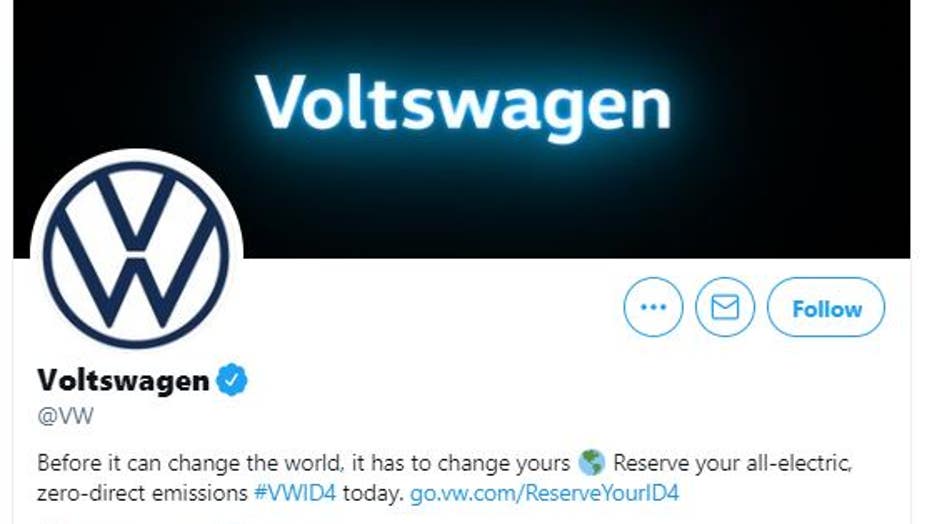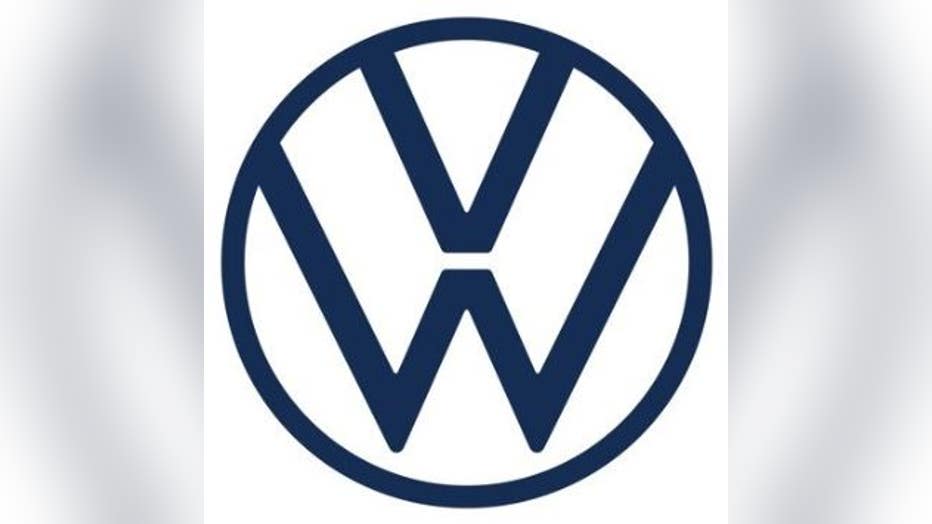Volkswagen hoaxes media with fake statement on name change
DETROIT - Volkswagen of America issued false statements this week saying it would change its brand name to "Voltswagen," to stress its commitment to electric vehicles, only to reverse course Tuesday and admit that the supposed name change was a joke.
Marketing stunt goes awry for Volkswagen with faux name change
Fake news came from the source itself, in this case Volkswagen of America. It issued a press release on the website saying it would change its brand name from Volkswagen to Voltswagen to show the automaker's commitment to electric vehicles. It now says it was just an April fool's joke.
Mark Gillies, a company spokesman, confirmed Tuesday that the statement had been a pre-April Fool's Day joke after having insisted Monday that the release was legitimate and the name change accurate. The company's false statement was distributed again Tuesday, saying the brand-name change reflected a shift to more battery-electric vehicles.
The initial press release came from the president and CEO of Volkswagen which was supposed to promote VW's new all-electric SUV. But public relations expert Matt Friedman, from Friedman and Tanner, says the problem is some of the most credible automotive journalists reported the name change - never knowing it was a media stunt.
"Their media relationships have probably been damaged," he said. "They need to fix those first at the same time with audiences, they need to be clear what happened and what didn't happen, and that is going to take time over the next couple of days."
Friedman says the fake news release not the best choice for the automaker that has been working to repair the damage from the 2015 emissions scandal where Volkswagen admitted it allowed diesel-powered vehicles to pollute the air.
"I can understand they want a fun take in what's become a very crowded environment with electric vehicles," Friedman said. "The problem is, that they came up with a stunt that was risky to begin with and they blew it. It was a bust. Instead of admitting it and moving on, they tried to cover it up and it made it much worse."
The company's fake news release, leaked on Monday and then repeated in a mass e-mail to reporters Tuesday, resulted in articles about the name change in multiple media outlets, including The Associated Press.
Volkswagen's intentionally fake news release, highly unusual for a major public company, coincides with its efforts to repair its image as it tries to recover from a scandal.
In that scandal, Volkswagen admitted that about 11 million diesel vehicles worldwide were fitted with deceptive software. The software reduced nitrogen oxide emissions when the cars were placed on a test machine but allowed higher emissions and improved engine performance during normal driving. The scandal cost Volkswagen $35 billion (30 billion euros) in fines and civil settlements and led to the recall of millions of vehicles.

Screen capture from the Volkswagen Twitter account page.
The fake release could land Volkswagen in trouble with U.S. securities regulators because its stock price rose nearly 5% on Tuesday, the day the bogus statement was officially issued. Investors of late have been responding positively to news of companies increasing electric vehicle production, swelling the value of shares of Tesla as well as of some EV startups.
James Cox, who teaches corporate and securities law at Duke University, said the Securities and Exchange Commission should take action to deal with such misinformation, which can distort stock prices.
"The whole market has gone crazy," Cox said. "We need to throw a pretty clear line in the sand, I believe, about what is permissible and what isn’t permissible."

This week's Volkswagen incident bears some similarity to one in 2018 in which Tesla's CEO Elon Musk tweeted that he had the funding secured to take the company private — a comment that drove up the stock price, Cox noted. Later, it was revealed that the funding had not been lined up.
A message was left Tuesday seeking a comment from the SEC.
Late Tuesday, VW issued a statement confirming that it won't be changing its brand name to "Voltswagen."
"The renaming was designed to be an announcement in the spirit of April Fool's Day," the company said.
Tim Calkins, a clinical professor of marketing at Northwestern University, said April Fool’s jokes are common in marketing. But he said it's rare for a company to deliberately mislead reporters.
"The problem is that in the short run, you can fool people, and it seems cute and entertaining," Calkins said. "But in the long run, you really do need positive and good relations with the media. For a company that already has credibility problems, this is really a strange move."
Calkins said that while the incident might not hurt VW with consumers, the company needs good relations with reporters to build its brand image over time.
--The Associated Press contributed to this report

